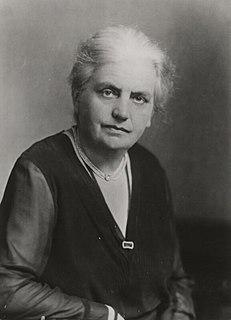A Quote by Aldo Leopold
There are two things that interest me: the relation of people to each other, and the relation of people to land.
Related Quotes
Richness, the ideas of having plenty of money, is not ... an absolute state. Richness is about the amount of money you have compared to the people you see around you. It is about where you are in relation to others, and where they are in relation to you ... and whether you can have the things you want and other people have.
I doubt whether there is any subject in the world of equal importance that has received so little serious and articulate consideration as the economic status of the family - of its members in relation to each other and of the whole unit in relation to the other units of which the community is made up.
The psychoanalysis of individual human beings, however, teaches us with quite special insistence that the god of each of them is formed in the likeness of his father, that his personal relation to God depends on his relation to his father in the flesh and oscillates and changes along with that relation, and that at bottom God is nothing other than an exalted father.
The world's most 'primitive' people have few possessions, but they are not poor. Poverty is not a certain small amount of goods, nor is it just a relation between means and ends; above all it is a relation between people. Poverty is a social status. As such it is the invention of civilization. It has grown with civilization, at once as an invidious distinction between classes and more importantly as a tributary relation.
The truly monumental can only come about by means of the most exact and refined relation between parts. Since each thing carries both a meaning of its own and an associated meaning in relation to something else - its essential value is relative. We speak of the mood we experience when looking at a landscape. This mood results from the relation of certain things rather than from their separate actualities. This is because objects do not in themselves possess the total effect they give when interrelated.
Semantics is about the relation of words to thoughts, but it also about the relation of words to other human concerns. Semantics is about the relation of words to reality - the way that speakers commit themselves to a shared understanding of the truth, and the way their thoughts are anchored to things and situations in the world.
Laziness acknowledges the relation of the present to the past but ignores its relation to the future; impatience acknowledge its relation to the future but ignores its relation to the past; neither the lazy nor the impatient man, that is, accepts the present instant in its full reality and so cannot love his neighbour completely.
The worst feature of this double consciousness is, that the two lives, of the understanding and of the soul, which we lead, reallyshow very little relation to each other; never meet and measure each other: one prevails now, all buzz and din; and the other prevails then, all infinitude and paradise; and, with the progress of life, the two discover no greater disposition to reconcile themselves.






































